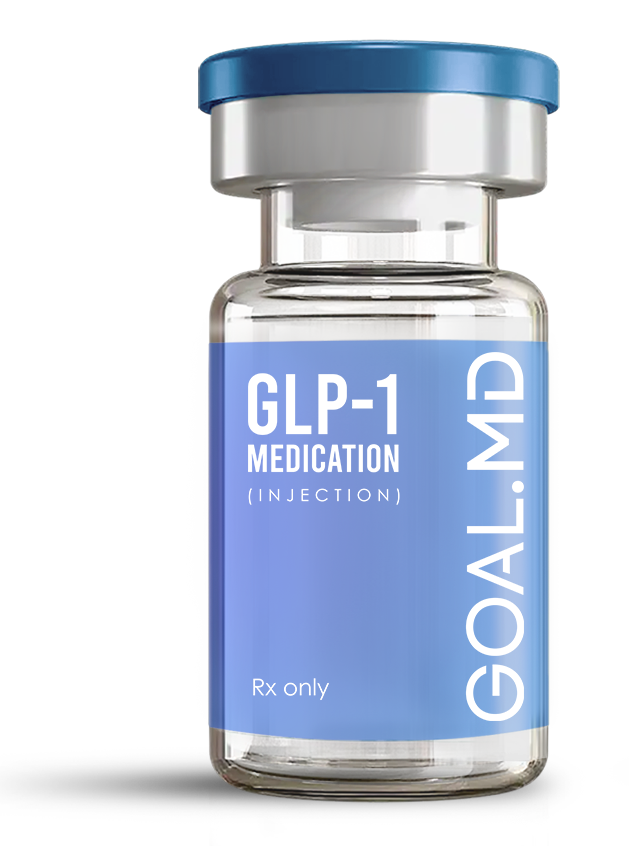
GOAL.MD Health & Wellness Blog
Evidence-based insights, medical weight loss information, and practical tips from our physicians and healthcare experts.

GLP-1s and Decision Fatigue: Why You Suddenly Care Less About Food
If you’ve started a GLP-1 medication like semaglutide (Ozempic®, Wegovy®) or tirzepatide (Mounjaro®, Zepbound®), you may notice something strange: food doesn’t occupy your mind the way it used to. The endless mental chatter about cravings, meal planning, or guilt is suddenly quiet.
This isn’t just a side effect—it’s tied to the way GLP-1s work in the brain and gut. At Goal.md, we hear this from patients all the time, and it’s one of the most liberating parts of treatment.

What Is Decision Fatigue (and How Is Food Involved)?
Decision fatigue occurs when your brain becomes exhausted from making too many choices. Food is one of the biggest contributors to what to eat, when to eat, and how much to eat. For people with obesity or insulin resistance, this cycle can feel like a full-time job. The brain is constantly negotiating between short-term cravings and long-term goals.
How GLP-1s Quiet the Noise
GLP-1 receptor agonists don’t just slow digestion and regulate blood sugar—they also act on the hypothalamus and reward centers of the brain. By changing the way your body interprets hunger signals, GLP-1s reduce cravings and lower the mental “volume” of food thoughts.
Patients often describe it as:
“I can walk past the pantry without thinking about it.”
“I don’t spend hours debating what to eat.”
“It feels like food has less power over me.”
This reduction in mental load frees up energy for work, relationships, and hobbies that previously took a back seat.
Why This Matters Beyond Weight Loss
When you no longer waste willpower battling food decisions, you can focus on sustainable behavior change. That’s where long-term results come from. Patients who embrace this mental shift are more likely to stick with healthy routines, practice mindful eating, and avoid the cycle of restriction and bingeing.
What to Do With Your Newly Found Mental Space
At Goal.md, we encourage patients to harness this clarity by:
Building routines around protein-rich, nutrient-dense meals so healthy eating becomes automatic.
Starting a strength or movement practice, since energy is no longer drained by food obsession.
Exploring goals outside of weight loss—career, relationships, or creative pursuits—that may have been buried under years of food preoccupation.
Final Takeaway
GLP-1s don’t just change your metabolism—they change your mind. By reducing decision fatigue around food, they give you back mental space you didn’t know you were missing. That’s one of the reasons these medications feel so life-changing.
👉 Ready to see how this could work for you? Start your personalized plan with Goal.md and reclaim your mental energy along with your health.
Why GOAL.MD?
✅ Sourced from audited 503a US compounding pharmacies.
✅ Custom dosages adjusted to your needs.
✅ Free consultation + 24/7 support.

How It Works
1. Quiz
90 seconds. No commitment.
2. Consult
Video chat with your GOAL.MD doctor.
3. Deliver
Meds at your door tomorrow.
Transform Your Life with Physician-Directed Care
Join thousands who've found success with physician-directed care. Take our 3-minute quiz to see if medical weight loss is right for you.







